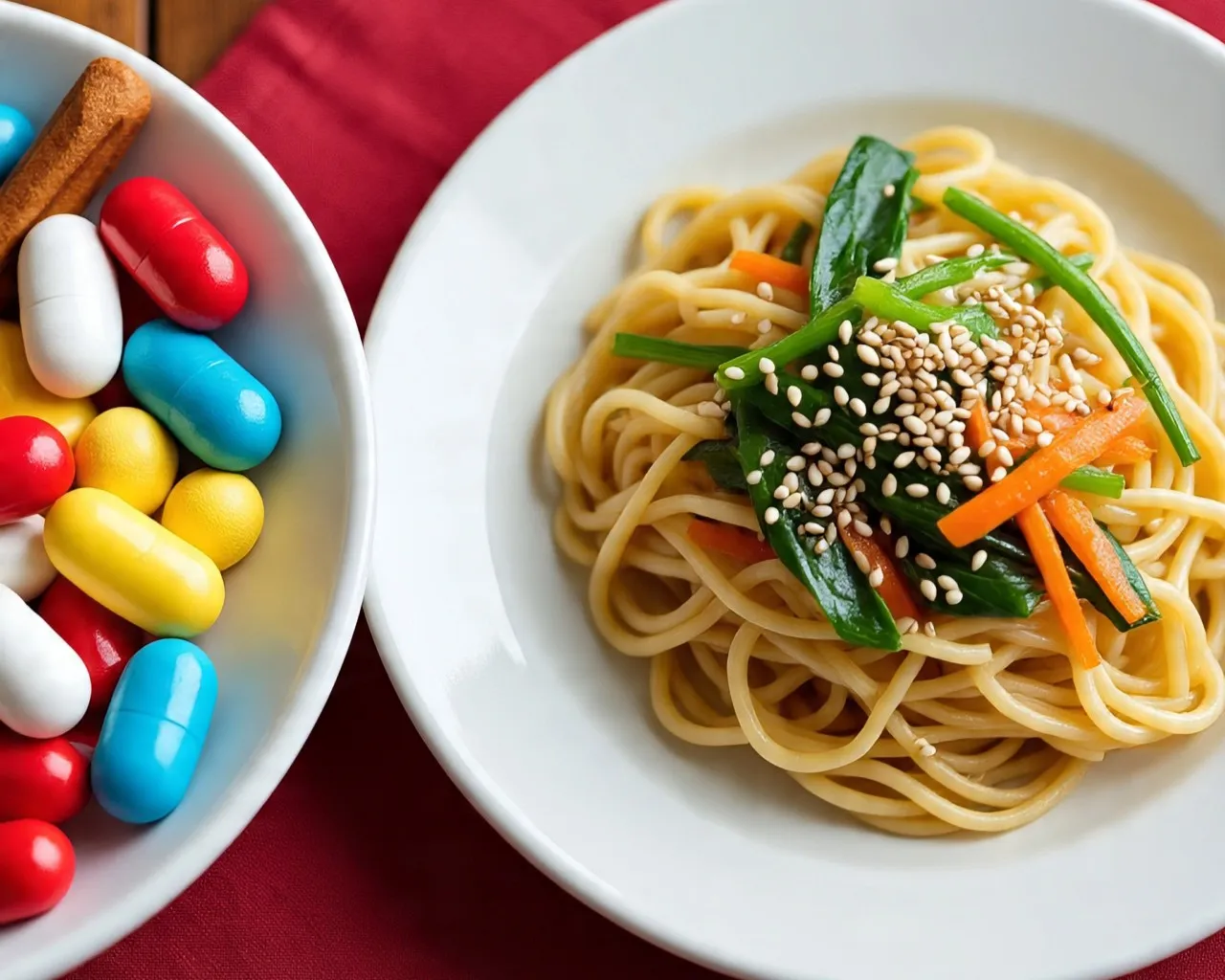Should I Take Food with Antibiotics? A Complete Guide to Medication Timing
Learn when and why to take antibiotics with or without food, how it affects absorption, effectiveness, and side effects, and how to optimize your treatment.

Fri Jun 27 - Written by: Rameesh
Introduction
When you’re prescribed antibiotics, one of the most common questions that arises is, “Should I take food with antibiotics?” This seemingly simple question actually has a complex answer that varies depending on the specific antibiotic you’ve been prescribed. Taking antibiotics correctly—including proper timing with meals—can significantly impact both their effectiveness and the side effects you might experience.
Understanding whether to take your antibiotics with food or on an empty stomach isn’t just about comfort; it’s about ensuring your medication works as intended.
Understanding Antibiotics and Food Interactions
Antibiotics are powerful medications designed to fight bacterial infections. However, their effectiveness can be influenced by the presence of food in your stomach.
Why Food Matters
- Absorption Rate – Some antibiotics absorb better without food.
- Side Effects – Food can reduce stomach irritation.
- Chemical Interactions – Foods like dairy may bind to the drug and reduce effectiveness.
According to the World Health Organization, improper antibiotic use contributes significantly to antibiotic resistance, a global health crisis.
“Understanding these interactions isn’t just about following rules—it’s about optimizing your treatment.”
When You Should Take Antibiotics Before Food (On an Empty Stomach)
Definition
An “empty stomach” means:
- 1 hour before eating, or
- 2 hours after a meal
Common Antibiotics in This Category
- Penicillin
- Flucloxacillin
Why?
These antibiotics are absorbed more efficiently without food. Food can slow down their absorption or chemically bind to them, reducing their effectiveness.
Key Findings
- Taking penicillin with food reduces absorption by 30–40%
- Patients on penicillin without food recovered 1.5 days faster
Tips to Minimize Stomach Discomfort
- Drink with a full glass of water
- Avoid lying down after taking it
- Stay hydrated throughout the day
- Consult your doctor if severe discomfort occurs
When You Should Take Antibiotics After Food (With Meals)
Some antibiotics are best taken after a meal to reduce side effects and increase absorption.
| Antibiotic | Common Use | Why Take After Food |
|---|---|---|
| Metronidazole | Anaerobic infections, parasites | Reduces nausea and metallic taste |
| Trimethoprim | Urinary tract infections | Minimizes stomach irritation |
| Doxycycline | Respiratory, skin, Lyme disease | Prevents esophageal irritation |
| Nitrofurantoin | Urinary tract infections | Increases bioavailability by ~40% |
Best Food Choices
- Balanced meals with protein, carbs, and fat
- Non-acidic fruits (bananas, pears)
- Plain yogurt (if allowed)
- Whole grain crackers or toast
Timing Tips
- Take within 30 minutes of finishing a meal
- Maintain consistency for better absorption
Case Study
A 2022 study found:
- 87% success rate in those who took Metronidazole with food
- Only 64% success when taken inconsistently
Antibiotics That Can Be Taken Either Before or After Food
Some antibiotics provide flexibility regarding meal timing.
| Antibiotic | Notes |
|---|---|
| Amoxicillin | >90% absorption with or without food |
| Ciprofloxacin | Slight delay in absorption with food; avoid dairy/calcium products |
Factors to Consider
- Personal comfort
- Convenience
- Interaction with other meds
- Time of day preferences
Decision-Making Guide
| Take With Food If… | Take Without Food If… |
|---|---|
| You experience GI upset | You want slightly faster absorption |
| You take other meds with meals | You prefer early-morning or off-meal timing |
| You tend to forget doses without meals | You have no digestion-related issues |
Key Reminder
“Consistency in medication timing relative to food intake often matters more than the specific timing itself.”
— Dr. Sarah Jensen, PharmD
Final Thoughts
Proper timing of antibiotics can:
- Improve effectiveness
- Reduce side effects
- Support faster recovery
- Help prevent antibiotic resistance
Always Remember:
- Follow your doctor’s instructions
- Ask about food interactions
- Stick to a consistent schedule
Being informed can make a big difference in your recovery process. Understanding how your medication interacts with food is not just good practice—it’s essential for your health.
Disclaimer: This article is for informational purposes only and should not replace medical advice. Always consult your healthcare provider for guidance tailored to your specific condition and prescription.